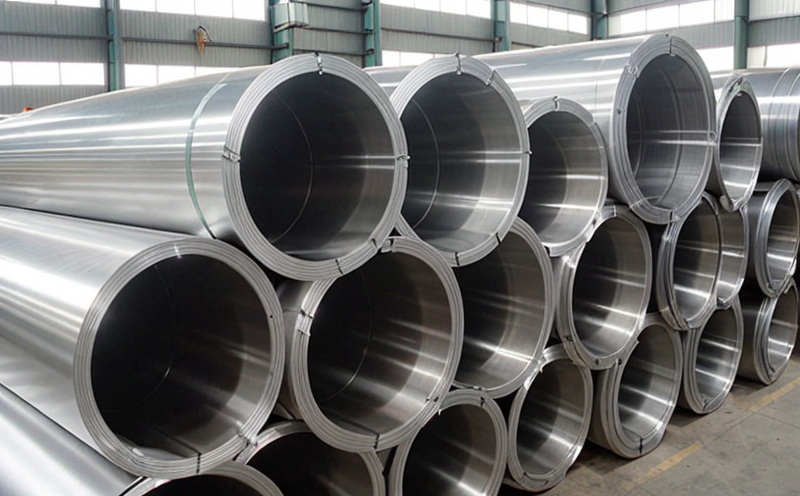IEC 60068-2-78 Comprehensive Environmental Simulation Testing of Marine Systems
The IEC (International Electrotechnical Commission) standard IEC 60068-2-78 specifies comprehensive environmental simulation testing procedures for marine equipment, including those made from aluminium materials. This standard aims to ensure that equipment can withstand the harsh environments typically encountered in marine applications.
The test focuses on simulating real-world conditions such as humidity, salt spray, temperature cycling, and other environmental stressors. Compliance with this standard is crucial for manufacturers of marine systems because it ensures that their products perform reliably under extreme conditions, enhancing safety and longevity at sea.
For aluminium materials specifically, the testing process must account for the unique properties of these metals. Aluminium's corrosion resistance makes it a popular choice in marine applications, but it also requires specific handling during environmental stress tests to avoid premature degradation or failure.
The test procedure involves subjecting specimens to controlled environments that mimic the conditions found in various maritime settings. This includes exposure to salt spray, which is particularly aggressive for aluminium materials due to their susceptibility to corrosion. The standard specifies precise humidity levels and durations to ensure accurate simulation of marine environments.
Temperature cycling tests are another key part of this standard. These tests simulate the wide range of temperatures encountered by equipment in different parts of a ship or during various operational scenarios at sea. For aluminium, these temperature changes can lead to thermal fatigue if not properly tested and handled. The test protocol ensures that the material properties are maintained under these conditions.
Another important aspect is the use of salt spray chambers that simulate the corrosive effects of maritime environments on aluminium surfaces. This testing helps identify any potential weaknesses in the alloy's structure or surface treatment, ensuring long-term durability and reliability.
The standard also covers additional tests such as vibration and shock resistance, which are critical for marine equipment subject to constant motion and impact. Proper testing ensures that the equipment can withstand these conditions without failure, enhancing safety and operational efficiency.
Understanding the specifics of IEC 60068-2-78 is essential for quality managers, compliance officers, R&D engineers, and procurement professionals who work with marine systems. By adhering to this standard, manufacturers can ensure that their aluminium-based marine equipment meets rigorous environmental requirements, thereby enhancing product reliability and safety in harsh maritime conditions.
The comprehensive nature of the testing ensures that all critical aspects affecting the performance and longevity of marine equipment are addressed. This includes not only material properties but also manufacturing processes and design considerations.
Why It Matters
Compliance with IEC 60068-2-78 is crucial for manufacturers of marine equipment, especially those using aluminium materials. The standard ensures that products can withstand the harsh environmental conditions typically encountered at sea.
- Humidity and Salt Spray Exposure: Marine environments are highly corrosive due to high humidity levels and exposure to salt spray. Testing under these conditions helps identify any potential weaknesses in the alloy's structure or surface treatment, ensuring long-term durability and reliability.
- Temperature Cycling: The wide range of temperatures encountered by equipment at sea can lead to thermal fatigue if not properly tested and handled. Proper testing ensures that the material properties are maintained under these conditions.
The standard also covers additional tests such as vibration and shock resistance, which are critical for marine equipment subject to constant motion and impact. By adhering to this standard, manufacturers can ensure that their aluminium-based marine equipment meets rigorous environmental requirements, thereby enhancing product reliability and safety in harsh maritime conditions.
For quality managers and compliance officers, ensuring compliance with IEC 60068-2-78 is essential for maintaining high standards of manufacturing and ensuring that products meet the necessary safety and performance criteria. For R&D engineers, understanding the specific testing procedures outlined in this standard is crucial for developing new materials and technologies that can withstand marine environments.
For procurement professionals, adherence to this standard ensures that they are sourcing only the highest quality aluminium-based marine equipment from reputable manufacturers who have demonstrated their commitment to environmental durability through rigorous testing.
Industry Applications
- Aluminium Hulls: Testing of hull materials helps ensure long-term durability and resistance against corrosion in saltwater environments.
- Mast and Rigging: Ensuring that these components can withstand the constant motion and impact at sea is critical for safety.
- Lifeboats: The testing ensures that lifeboat equipment remains functional under extreme environmental conditions, enhancing safety during emergencies.
- Navigation Equipment: Accurate navigation in harsh environments requires robust materials like aluminium that can withstand salt spray and temperature changes.
The comprehensive nature of IEC 60068-2-78 testing ensures that all critical aspects affecting the performance and longevity of these components are addressed. This includes not only material properties but also manufacturing processes and design considerations.
By adhering to this standard, manufacturers can ensure that their products meet rigorous environmental requirements, thereby enhancing product reliability and safety in harsh maritime conditions.
Competitive Advantage and Market Impact
- Demonstrated Reliability: Compliance with IEC 60068-2-78 provides a competitive edge by demonstrating that products are reliable under extreme conditions.
- Increased Safety: By ensuring that equipment can withstand harsh marine environments, manufacturers improve safety and reduce the risk of accidents at sea.
- Prestige and Reputation: Adhering to international standards like IEC 60068-2-78 enhances a company's reputation and brand image in the maritime industry.
- Better Design and Manufacturing Processes: The testing process helps manufacturers identify weaknesses in their products, leading to improvements in design and manufacturing processes.
The market impact of adhering to IEC 60068-2-78 is significant. It not only enhances the reputation and brand image of companies but also ensures that they are meeting the highest environmental standards, which is crucial in a competitive industry like maritime equipment manufacturing.
By demonstrating compliance with this standard, manufacturers can attract more customers and partnerships, thereby gaining a competitive advantage in the market. This ensures long-term sustainability and success in the industry.





